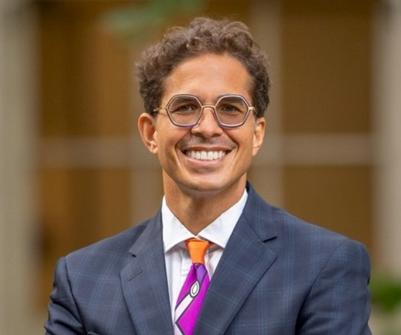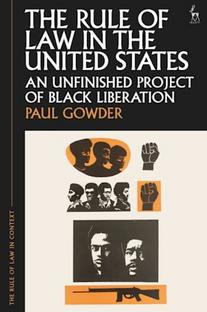

The Rule of Law in the United States: An Unfinished Project of Black Liberation

The United States perceives itself as a republic of law, one in which power especially government power is closely regulated by rules rather than by the whims of the powerful. This ideal, known as "the rule of law," features prominently in American political debate and also in the face the United States presents to the outside world.
Yet, the protections of our law have always been delivered unequally. At America's founding, the claim to respect property rights was paired with the open disregard of the prior claims to the land of Native American nations, including in a U.S. Supreme Court decision in which Chief Justice John Marshall openly declared that the relationship between the U.S. courts and Native Americans was one not of law but of conquest. Ideals like freedom and due process were paired with the most arbitrary relation of power in the history of the world, that of racialized chattel slavery.
Even today, subordinated racial groups in segregated neighborhoods continue to be the victims of lawless power in the form of broken windows policing, under which officials claim the authority to minutely supervise the lives of those whose rights they purport to protect and to back up that supervision with hair-trigger violence. And immigrants present themselves at the border to a legal system that purports to hold so-called "plenary power " over them—the brute right to decide on their fate without any meaningful legal constraints at all.
That doctrine that lay, thinly hidden, in the background of the U.S. Supreme Court's decision to permit Donald Trump to implement his blatantly unconstitutional Muslim Ban at the start of his time in office.
Drawing from his latest book, , Professor Paul Gowder suggests that the right response to these circumstances is to understand America's claims to the rule of law as the product of struggle, a struggle primarily (though not exclusively) driven by the long movement for Black liberation spanning the abolition movement, the civil rights movement and the contemporary movement for Black lives. By telling the story of the development of the American rule of law such as it is through the lens of Black liberation, we can begin to see the shape of our constitutional ideals in their best form and the way to continue building them today.
THE RULE OF LAW IN THE UNITED STATES: AN UNFINISHED PROJECT OF BLACK LIBERATION
THE RULE OF LAW IN THE REAL WORLD THE RULE OF LAW IN THE UNITED STATES: AN UNFINISHED PROJECT OF BLACK LIBERATION

Paul Gowder is a professor of law and the associate dean of research and intellectual life at Northwestern University Pritzker School of Law, and the author of (Cambridge University Press, 2016) and (Hart/Bloomsbury 2021). His research spans fields including political and legal philosophy, racial justice, constitutional theory, platform governance and classical Athenian law.
Gowder has a PhD in Political Science from Stanford and a JD from Harvard. He has taught beginning and advanced constitutional law courses, statistics and programming for lawyers, torts, critical race theory and legal ethics, among other subjects. He also is a fellow of the Integrity Institute. Formerly, he was a legal aid and civil rights lawyer, and in those contexts, he represented victims of police misconduct, predatory lending, employment discrimination, unlawful eviction, domestic violence and numerous other injustices.
To learn more about Paul Gowder, visit https://gowder.io.
Established in 1988, thanks to a gift from the late E. Stanley Enlund (JD ’42), the Enlund Scholar-in-Residence Program attracts the nation’s foremost legal minds. Enlund scholars provide the College of Law community of students, faculty, alumni and friends with differing perspectives on law, lawyers and social justice.
Paul Gowder The Enlund Scholar-in-Residence Program